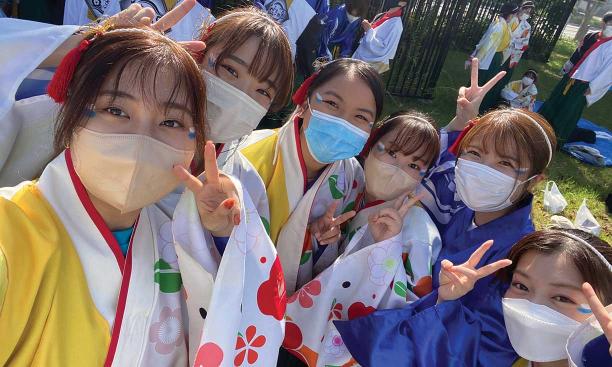
Ben Fasciano was originally set to graduate with Princeton’s Class of 2021. Now, in the fall of 2022, he is finishing up his last semester of college in Milan, Italy.
“It’s a little bit of a strange situation,” said Fasciano.
This is his second time at Bocconi University, but it will be the first full semester he will complete there. At the height of the pandemic in the spring of 2020, Fasciano was one of 160 Princeton students studying abroad who had to be recalled from universities around the world. All programs were put on pause through the summer of 2021.
Since then, Fasciano has taken one and a half gap years, and after another last-minute cancellation this past spring, he has finally returned to Milan to finish what he started. At Bocconi, Fasciano is continuing his studies in the economics department. Having completed his senior thesis and all but one of his departmentals, he says he feels a lot more freedom this time around to explore the city, practice his Italian, and travel around Europe.
Like Fasciano, many students abroad have had to grapple with pandemic-related obstacles. But Princeton’s study abroad programs are on their way to a complete return, with 43 students abroad this fall, according to Gisella Gisolo, director of the study abroad office. The gradual return began in the fall of 2021 with three students in Hungary and Denmark, and continued last spring, when 19 undergrads participated in the Semesters in the Field program at the University’s Mpala Research Centre in central Kenya.
“This is, I estimate, my third attempt to study abroad,” said Anne Wen ’23, a senior in the East Asian Studies department now studying at Doshisha University in Kyoto, Japan. “There were so many moments when I wanted to give up and felt like going back to the comfort of Princeton would have been better. And yet I know, being here two months into the country, that that would have been the worst decision I could have made.”
Visiting temples, climbing Mount Fuji, attending festivals, and painting lacquerware chopsticks, Wen says that no two days look the same. Although the initial adjustment to the country and language made the first few weeks difficult, Wen also spoke about the value of placing yourself in environments outside of your comfort zone.
“I can understand that someone whose entire college experience was decimated by COVID [would want] to be on campus because they haven’t had the full experience,” she said. But Wen feels she has had the opportunity to take advantage of Princeton to the fullest. “I feel very comfortable [at Princeton], and I very much believe that if you are too comfortable, you’re not learning as much.”
Unlike Fasciano and Wen, Kazuki Tojo ’24 has had less time to experience a normal Princeton. Though he ultimately decided to spend his junior year at Oxford, his choice was made more difficult by COVID — as a member of the Class of 2024, much of his Princeton career has been defined by the pandemic. Studying abroad “would have been a no-brainer” if he’d been on campus for all of freshman year, Tojo said.
Regardless, he doesn’t regret anything. As much as he enjoys his time at Princeton, he said that being in the same environment can get repetitive.
“I think it’ll be great to have a new challenge for a year, and then go back and spend one last really nice year with all my friends,” he said.
Oyin Sangoyomi ’23 was also planning to study abroad her junior year but had to wait until her senior fall. She is studying at University College London through Princeton’s English department.
Though the change means that Sangoyomi will have less time on campus for her final year, the timing worked out in other ways. For her thesis, she is writing a book set in Victorian London, and Sangoyomi has used her time abroad to help inform her work.
“I’ve enjoyed experiencing the streets that I’m writing about, walking down them like my characters will be,” Sangoyomi said.
From creative inspirations to cultural immersion, students all spoke of the ways in which their time abroad has broadened their perspectives.
“I’ve had some of the most meaningful cross-cultural conversations that lasted four to six hours each time,” said Wen. “And I don’t think those conversations can ever be replaced by experiences I would have at Princeton.”

